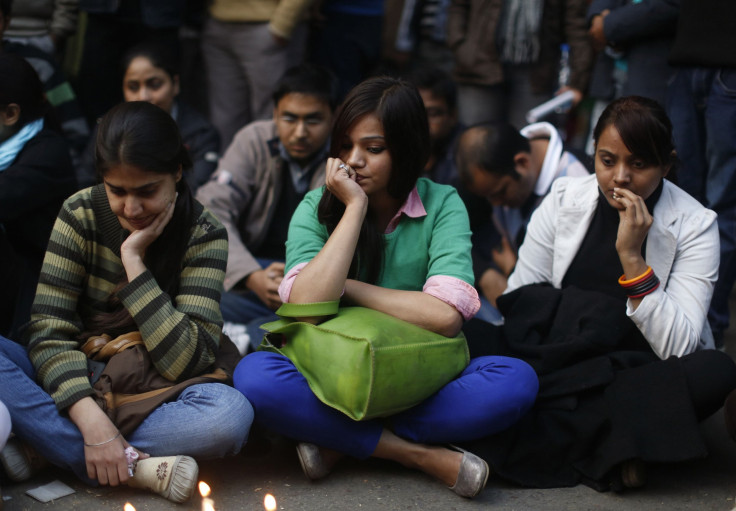Delhi Gang-Rape Protests: How Long Will India’s Latest ‘Arab Spring’ Last?
Opinion

The massive protests in New Delhi and across India in response to the widely reported gang rape and subsequent death of a student have been termed as “unprecedented,” as the “awakening of the Indian middle class” and even as "India’s Arab Spring."
There is no denying that the protests have indeed been huge, generating round-the-clock media coverage and television chatter. But do they really deserve to be called "revolutionary?"
Consider that on a humid Sunday morning, July 31, 2011, an impressive crowd of young women along with teachers, parents and activists -- people from the same demographic groups that are leading the current demonstrations -- marched through the streets of New Delhi peacefully, protesting sexual violence against women. The protesters held signs that said such things as “Enough,” "Believe it or not, my short skirt has nothing to do with you!” and "Gentlemen don’t get provoked; Sexual offenders don’t need provocation" -- and a slogan that shocks us in retrospect: "Mujhe bus mein safar karna hai, English wala suffer nahin," which translates to "I want to travel by bus, not suffer.”
Little did we know then that the protest, which formed a part of the SlutWalk movement worldwide, would be repeated a year-and-a-half later with the same slogans -- sadly, after a 23-year-old woman had been brutally assaulted on a Delhi bus.
The recent protests in India have also sparked a wave of similar displays of outrage in neighboring Nepal, Pakistan and Bangladesh.
Was the SlutWalk movement -- spawned by a Canadian police officer’s remark in January 2011 that “women should avoid dressing like sluts in order not to be victimized” and spread worldwide within a matter of months -- of any lesser in magnitude than the current wave of protest?
Apart from the fact that these marches were more or less peaceful and there was no single story of gut-wrenching human tragedy to associate with it, the SlutWalk protests did present societies and governments across the world with a moment of introspection. Unfortunately, the public, the media and the government generally missed the point of the demonstrations and many instead ogled the women who marched in skimpy clothes as they simultaneously lamented the death of social conservatism.
The SlutWalk in New Delhi was remarkably less risqué than other similar protests due to India’s timid socio-cultural context. Still, when Belinda Fleischmann, who works for the non-profit organization Operation Asha, pulled up her tank top to expose her stomach during the march, very large taboos were breached.
Given the current level of public participation and support for the Delhi anti-rape protesters, the results of a poll on CNN-IBN -- which asked whether protests such as the SlutWalk could change the way men look at women in India -- were rather surprising.
More than 50 percent of the respondents said “No,” while 32 percent said “Yes” and 16 percent were undecided.
“A few attention-seeking, rebellious girls at work!” a reader wrote in response to the poll. “Why do they need to offend others to make their point?”
Aarthi Narasimhan, a Bangalore-based activist who volunteers for the non-profit organization Bhumi, believes there is hypocrisy in the public’s and the establishment’s generally positive reaction to the current protests.
While voicing her support for creating awareness and enabling women to defend themselves, Narasimhan recalls the efforts by friend and fellow activist Vishnu Soman, who tried to organize a march in Bangalore with the support of multi-national corporations in the city, prior to the Dec. 16 gang rape in Delhi.
“Soman’s requests for support to raise awareness on sexual harassment at workplaces and elsewhere were turned down,” said Narasimhan, who works for a major corporation. “But with the current media promotion, corporations are now willing to lend support to a similar protest that he was trying to organize earlier.”
But how long will the media support last?
It has not been very long since India has had a lesson on how media attention, while extremely vital to keeping an issue in the public eye, can kill a movement. Activist Anna Hazare’s popular anti-corruption movement, which was also likened to the Arab Spring, has now become the Aam Aadmi Party, whose current status has led several commentators to observe that a political party thriving in New Delhi’s media glare, without grassroots support, was doomed to fail.
The fate of the Delhi protests, which is similar to the anti-graft movement in several respects, is not yet written.
© Copyright IBTimes 2024. All rights reserved.












